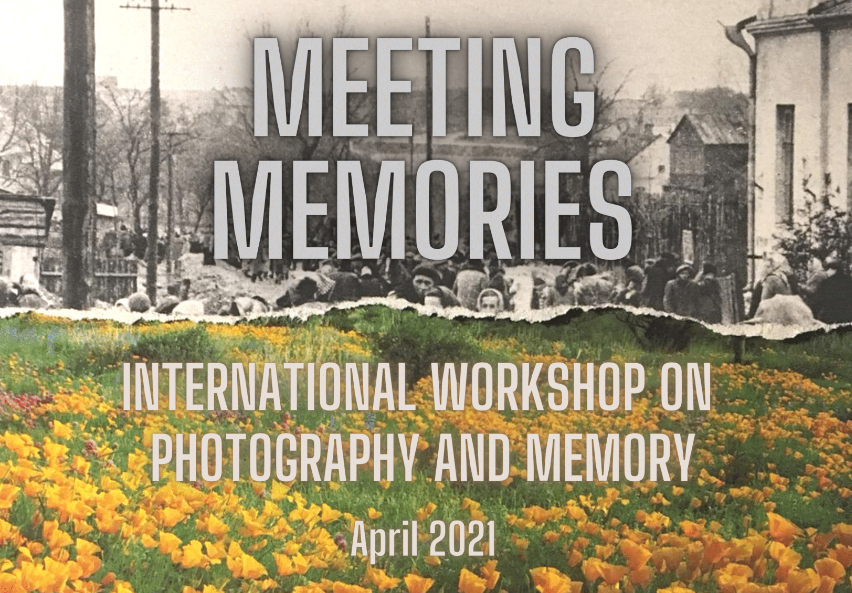Meeting Memories
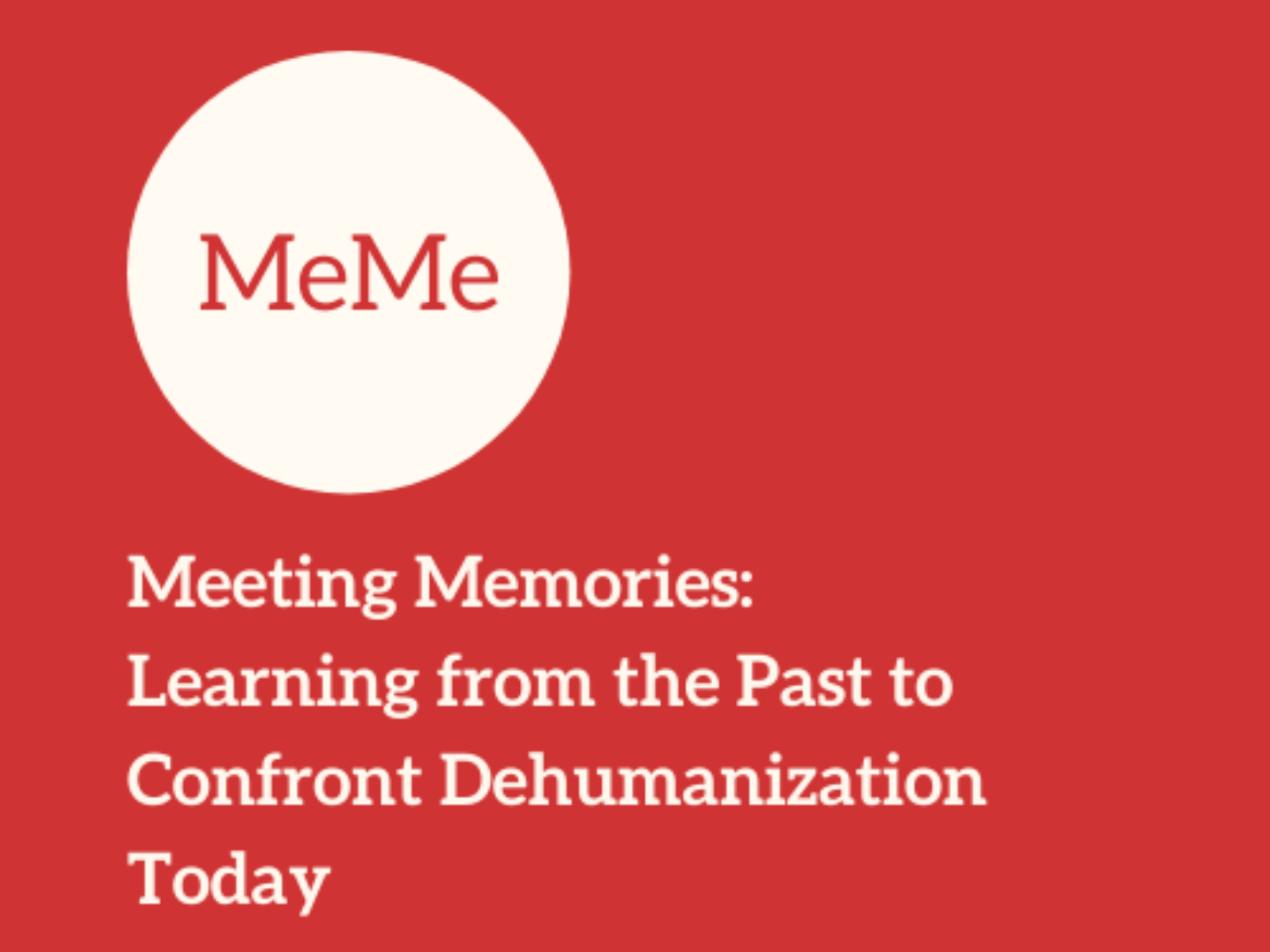
Meeting Memories: Learning from the Past to Confront Dehumanization Today
The project “Meeting Memories: Learning from the Past to Confront Dehumanization Today (MeMe)” was developed and implemented by Documenta – Centre for dealing with the past, and its partners Javna ustanova Spomen podrucje Jasenovac (Croatia); Centar za informativnu dekontaminaciju mladih (Bosnia Herzegovina); Stiftung Jugendgästehaus Dachau (Germany); Università degli studi di Udine (Italy); Centre for Public History (Serbia), and Socialna Akademija (Slovenia).
Through its activities and results, the project aimed to raise awareness on the process of dehumanization that led to the “othering” and the extermination of different social groups (Jews, Roma, LGBTQ+ community..) during the 1930s and 1940s. Despite focusing on Nazi and Fascist regimes, the project also addressed patterns of dehumanizing propaganda in nowadays societies, and included young people in a reflection about the causes and consequences of these dangerous ideologies today. The project contributed to make citizens more aware, resilient, and capable to be critical towards authoritarianism and populism and less prone to racism and radicalization; as well as to promote peace and tolerance; support intercultural and inter-generational dialogue; support the process of reconciliation; and promote European values, such as solidarity.
The main project results are: booklet with methods „Meeting Memories” (MeMe - Booklet (documenta.hr), online exhibition with photographs and comics (Meeting Memories (@meetingmemories2021), and the physical exhibition “Qui si parla italiano, qui si saluta romanamente”. The project is funded through the Europe for Citizens programme of the European Union.
The project included a series of activities, which took place from November 2020, to the first months of 2023, in online, hybrid, and physical formats.
The project started with the kick-off meeting (preparatory activity), held in November 2020. On the meeting, the partners introduced themselves and their organizations, and started the detail planning of the following project activities, discussing risk management, tasks and obligations of the consortium, communication strategies and visibility.
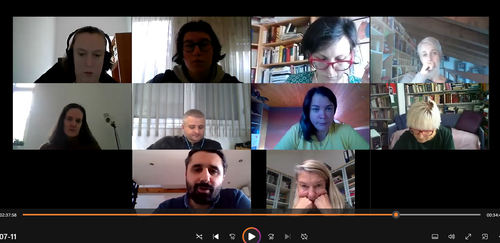
On November 9th, 2020, on the occasion of the International Day Against Fascism and Anti-Semitism and the 82nd anniversary of the Night of Broken Glass the partners organized the public conference “New Approaches to Legacy of Holocaust and Holocaust Education”, in hybrid form. The conference brought together various expert speakers on history of the Holocaust and Holocaust education, who discussed best practices and examples, as well as challenges and issues. The conference resulted in a collection of recommendations for teaching of Holocaust education, collected in the Booklet (MeMe - Booklet (documenta.hr). The conference was organized in cooperation with the American Embassy in Zagreb.
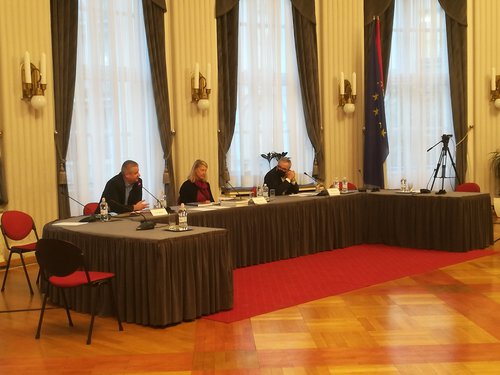
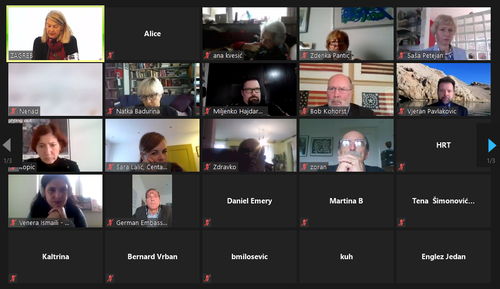
In April 2021, because of the challenges connected to the pandemic, the activities planned as physical had to be implemented as hybrid. Despite these issues, the partners succeeded in organizing the workshop on photography and memory. The first two days of the workshop took place online, and consisted in an introduction on the project, and on the role of the photographer, when dealing with places of memory and remembrance. The sessions were guided by the photographers Sandra Vitaljić and Saša Kralj. Then, the participants took part in study visit to places of memory (former concentration camps, places of suffering and resistance) in the partner countries, and took photos. Back together online, the participants selected the photos for the online exhibition, and evaluated the project. The participants from Croatia visited the Jasenovac and Stara Gradiška camps, and took part in the commemoration, public discussion, and opening of the exhibition “The path of no return” on the internees of the concentration camp Jasenovac, and their unfortunate journey to the concentration camp Slana, on the island of Pag. The participants from Serbia visited the location of the former concentration camp Staro Sajmište. The public online discussion “Photography and memory: new approaches to culture of remembrance” and presentation of the online exhibition (Meeting Memories (@meetingmemories2021) concluded the events.
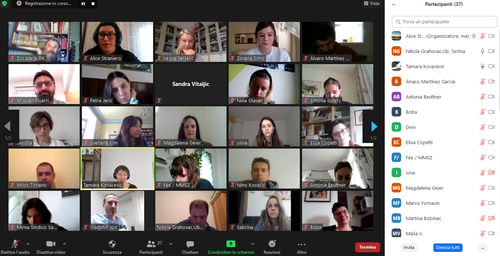
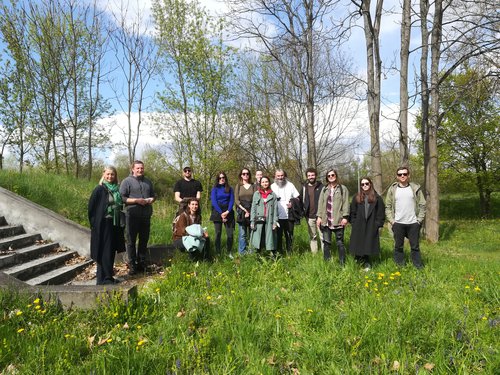
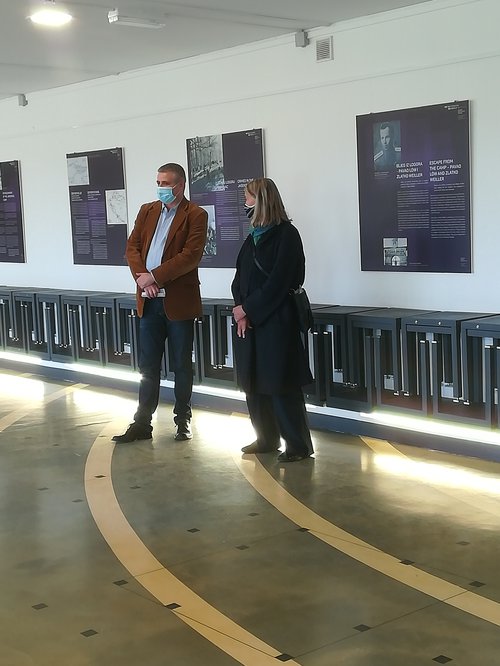
The activity A4, international workshop on comics and memory, was organized in a similar format in June 2021. On international online sessions, the participants started the discussion on how to approach topics connected to WWII, Holocaust, remembrance, personal memories and biographies through comics, guided by the comic artist Aleksandar Zograf. Then, the participants took part in national study visit in the partner countries. Participants from Germany visited the former concentration camp and now memorial place Dachau. Back together online, the participants created their comics, inspired by the study visits. The public discussion "Meeting memories: a conversation with Aleksandar Zograf” took place, and concluded the event.
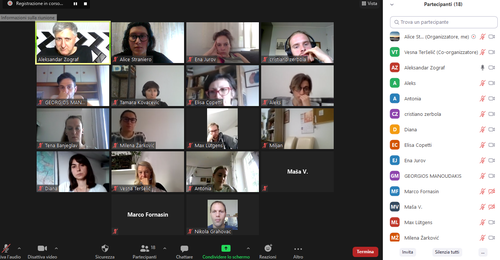
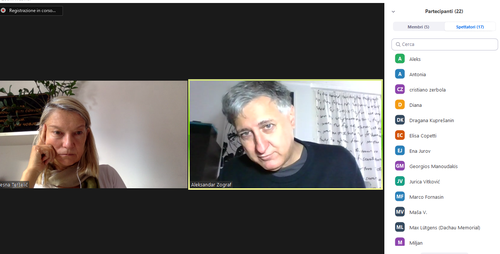
During 2022, the partners were finally able to organize the activities in physical form. In April, the consortium organized a seminar for teachers and youth workers in Ljubljana, Slovenia, which included around 30 participants from Bosnia-Herzegovina, Croatia, Italy, Slovenia, and Serbia. During the seminar, the participants visited the National Museum of contemporary history, exchanged good methods and practices, and visited locations connected to WWII. They developed methods together, to be used in their everyday work with students and young people.
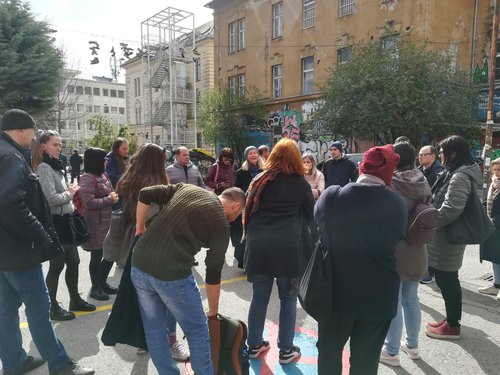
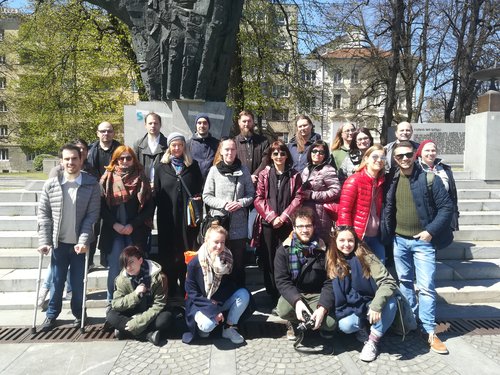
In May, the partners organized the final event of the project in Udine, Italy. On the event, the partners disseminated the project results, including the physical exhibition “Qui si parla italiano, qui si saluta romanamente”, which was opened in the spaces of the University of Udine, and inaugurated with the curators Nataša Matausić and Saša Kralj. The partners also organized a public encounter with two survivors of Fascist concentration camps, Marija Šimić and Slavko Malnar, whose stories are also included in the exhibition as panels and video materials. The program also included a guided tour in places connected to WWII in Udine, and a series of guided visits to the exhibition for the students. The exhibition was opened for three weeks and available to the public.
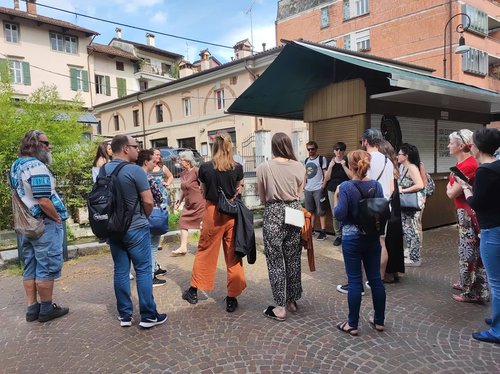
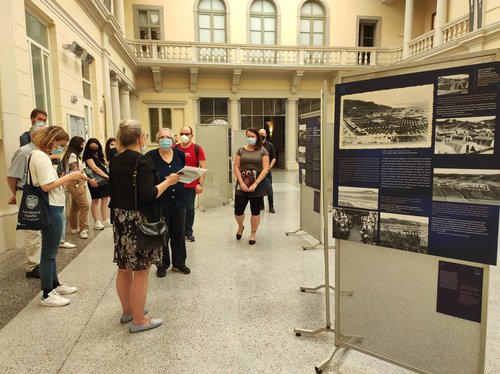
Finally, the project included a series of multiplier events in the partner countries, with the aim of presenting the project and its results.


